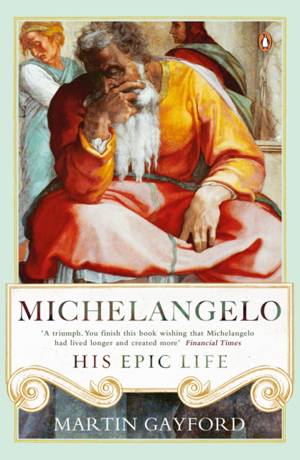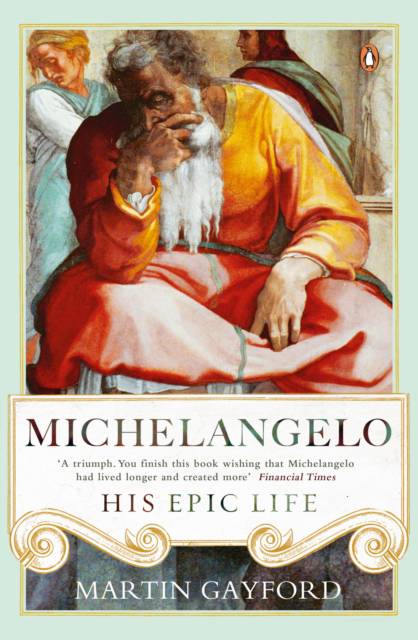
- Afhalen na 1 uur in een winkel met voorraad
- Gratis thuislevering in België vanaf € 30
- Ruim aanbod met 7 miljoen producten
- Afhalen na 1 uur in een winkel met voorraad
- Gratis thuislevering in België vanaf € 30
- Ruim aanbod met 7 miljoen producten
Omschrijving
There was an epic sweep to Michelangelo's life. At 31 he was considered the finest artist in Italy, perhaps the world; long before he died at almost 90 he was widely believed to be the greatest sculptor or painter who had ever lived (and, by his enemies, to be an arrogant, uncouth, swindling miser). For decade after decade, he worked near the dynamic center of events: the vortex at which European history was changing from Renaissance to Counter Reformation. Few of his works--including the huge frescoes of the Sistine Chapel Ceiling, the marble giant David and the Last Judgment--were small or easy to accomplish. Like a hero of classical mythology--such as Hercules, whose statue Michelangelo carved in his youth--he was subject to constant trials and labors. In Michelangelo, Martin Gayford describes what it felt like to be Michelangelo Buonarroti, and how he transformed forever our notion of what an artist could be.
Specificaties
Betrokkenen
- Auteur(s):
- Uitgeverij:
Inhoud
- Aantal bladzijden:
- 688
- Taal:
- Engels
Eigenschappen
- Productcode (EAN):
- 9780241299425
- Verschijningsdatum:
- 1/10/2017
- Uitvoering:
- Paperback
- Formaat:
- Trade paperback (VS)
- Afmetingen:
- 145 mm x 231 mm
- Gewicht:
- 1383 g

Alleen bij Standaard Boekhandel
Beoordelingen
We publiceren alleen reviews die voldoen aan de voorwaarden voor reviews. Bekijk onze voorwaarden voor reviews.











